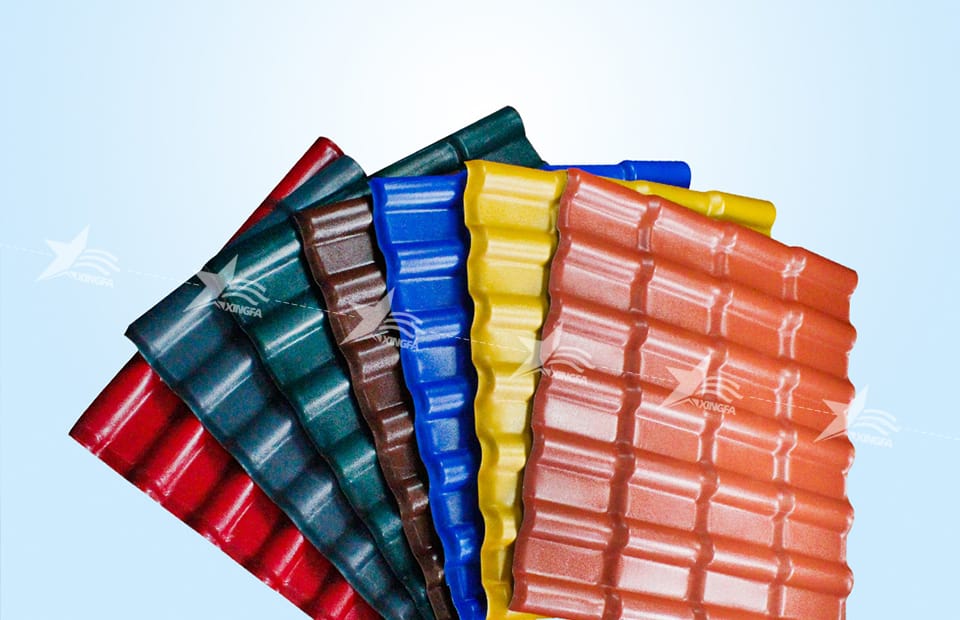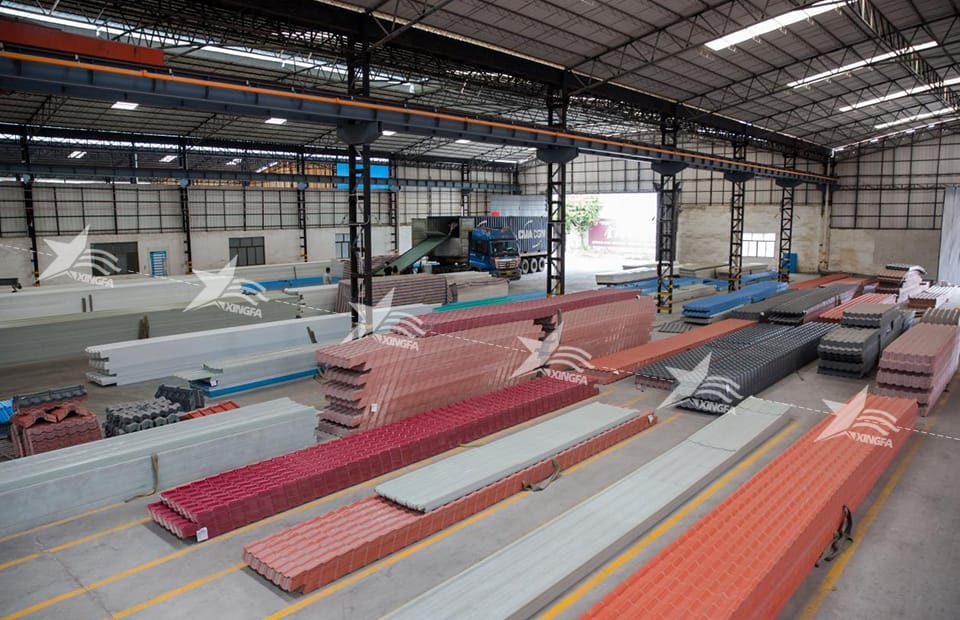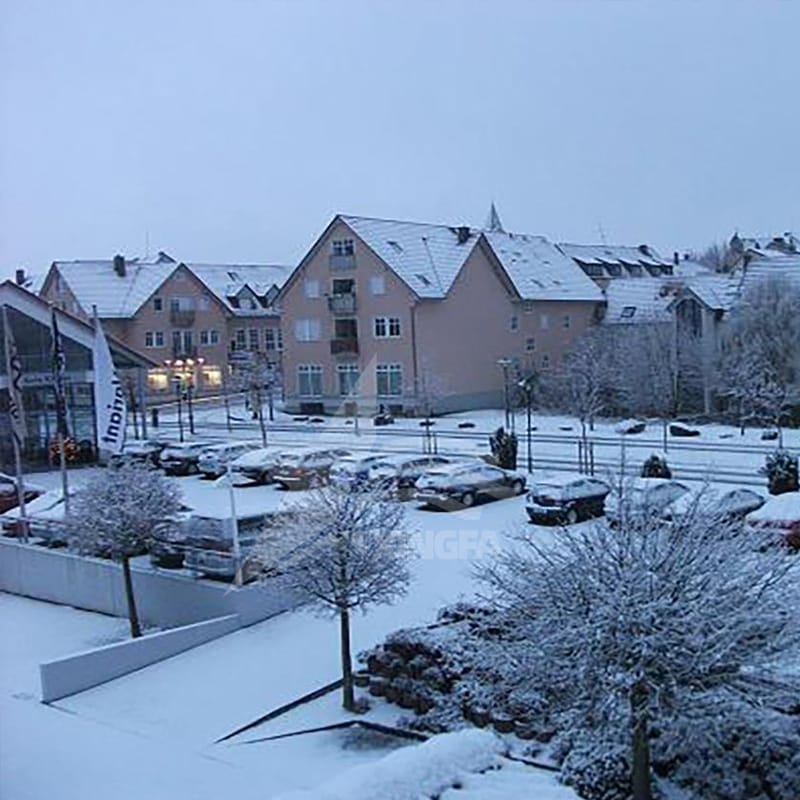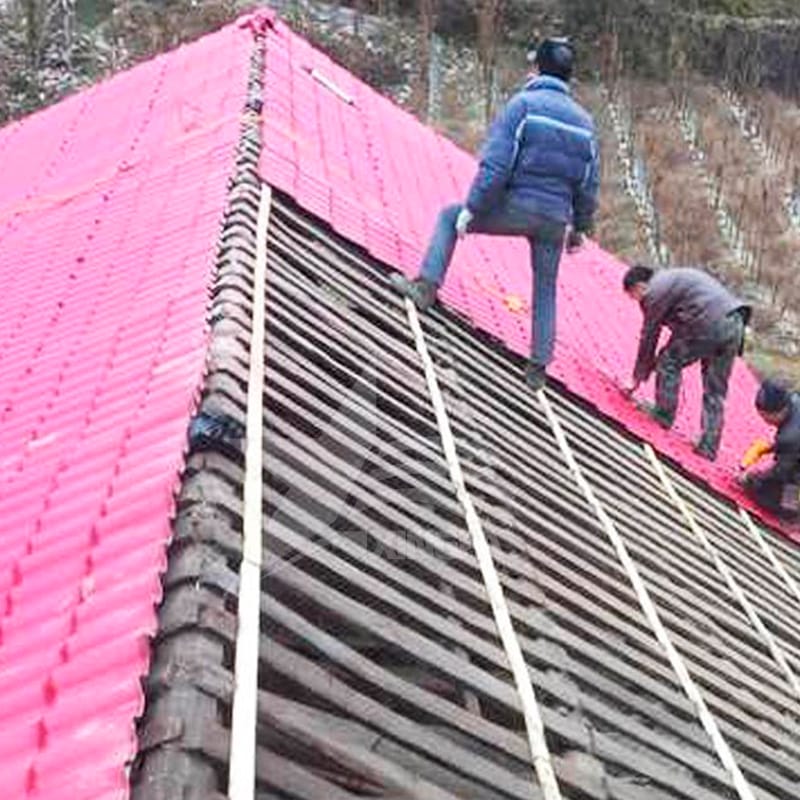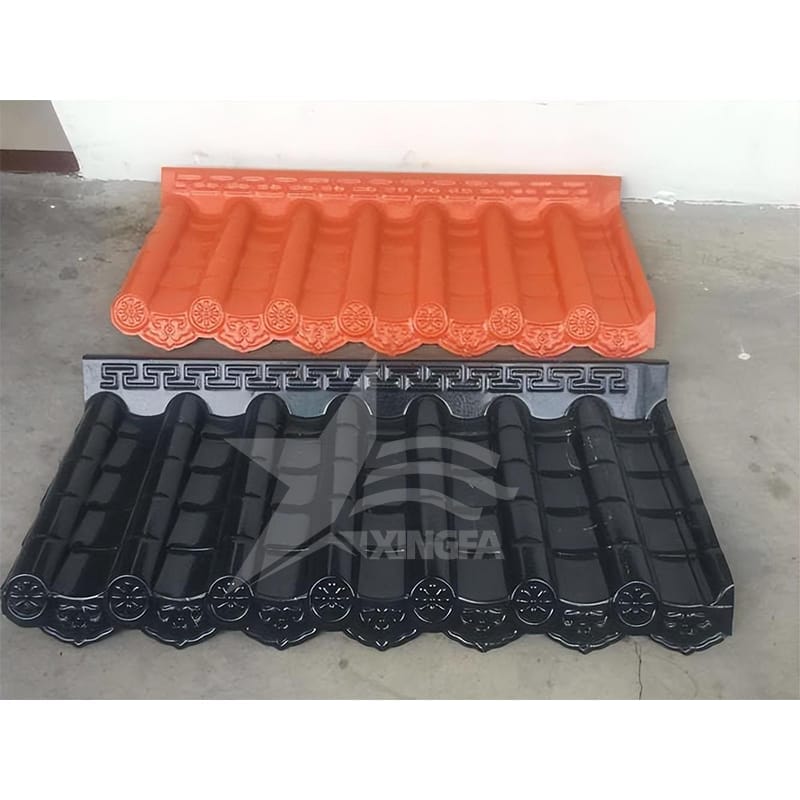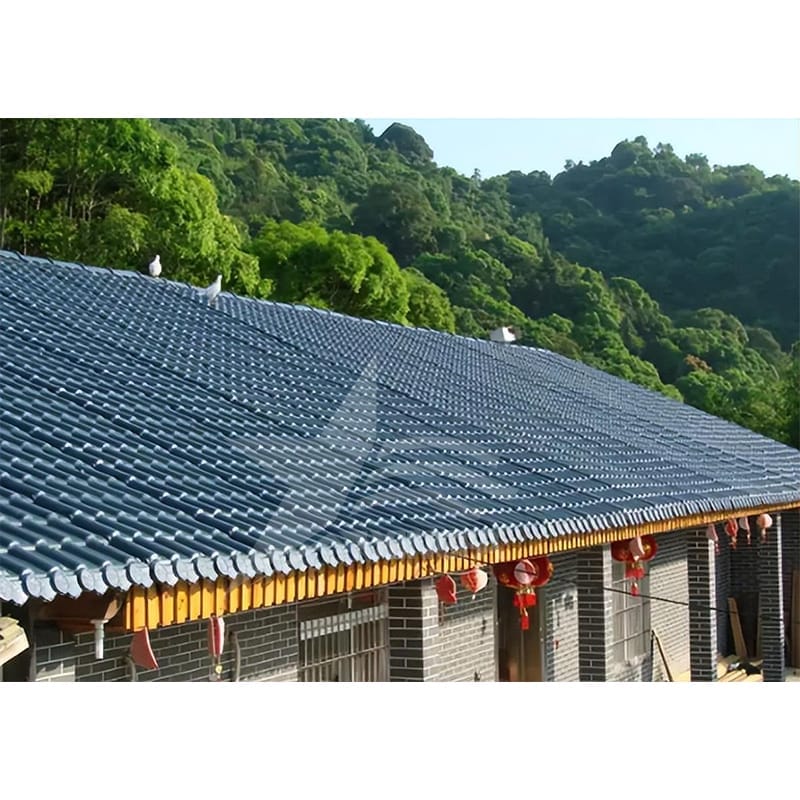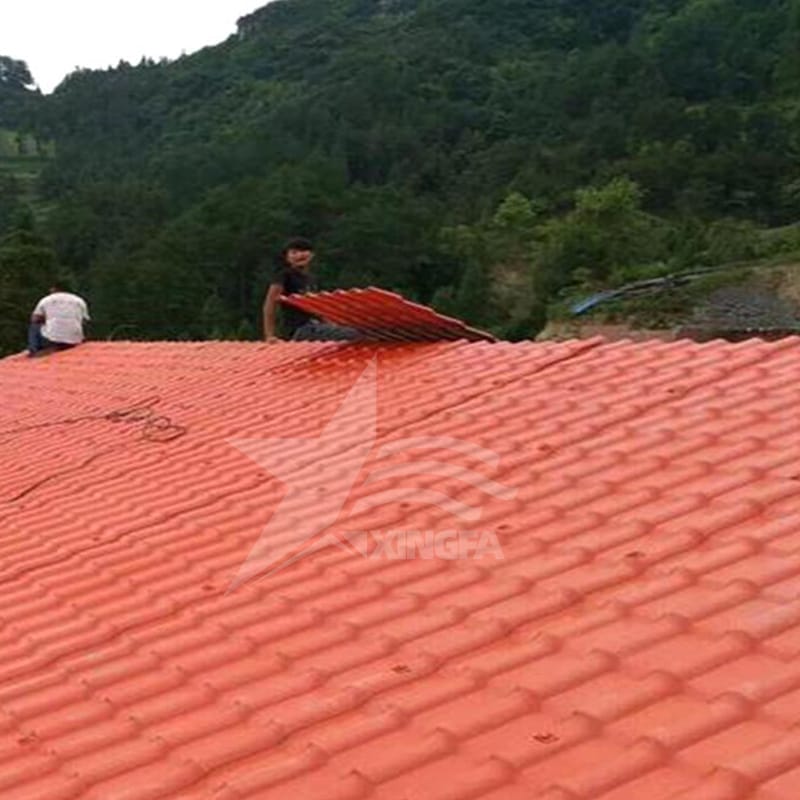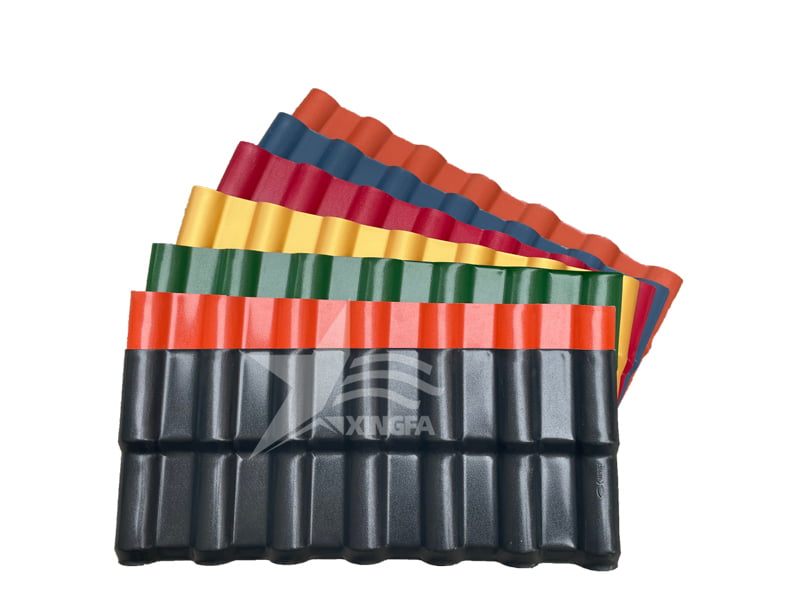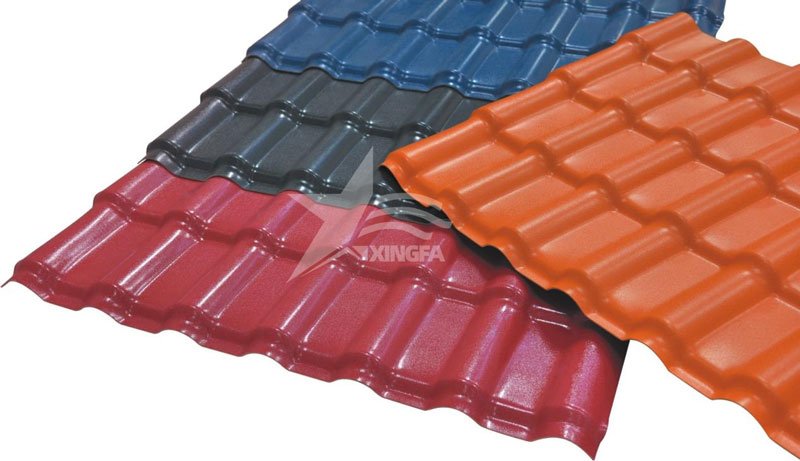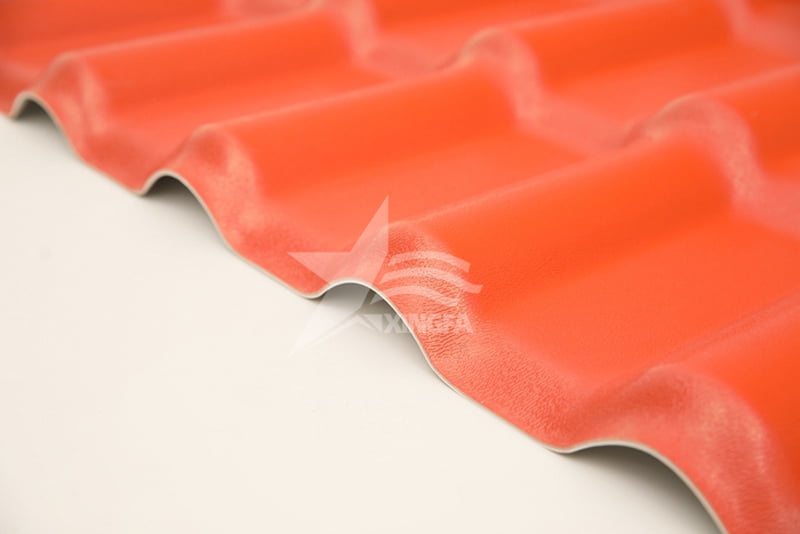When disaster strikes, the focus swiftly shifts to rebuilding. The selection of appropriate building materials becomes critical, with safety, environmental sustainability, and cost-effectiveness being paramount considerations. Resin tiles, as an innovative and eco-friendly building material, are increasingly becoming the preferred choice for post-disaster reconstruction.
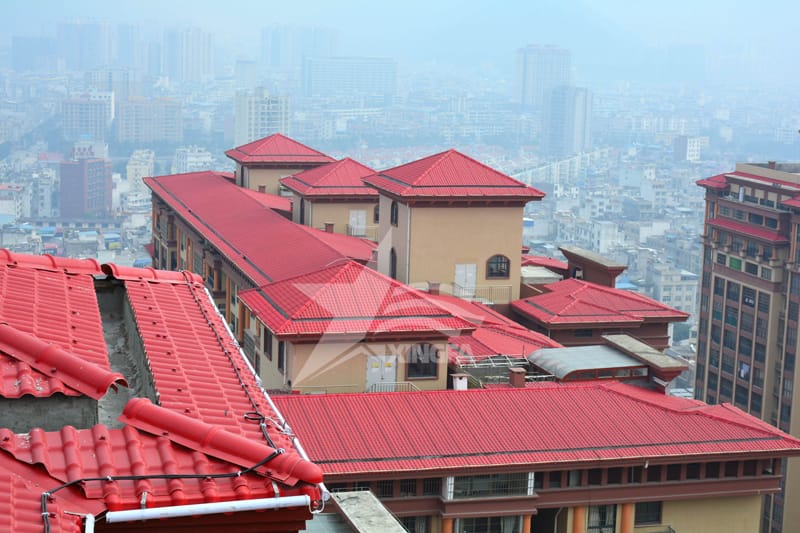
Resin tiles offer a reliable solution for rebuilding efforts due to their unique advantages. Made from polyester resin and fiberglass, these tiles are lightweight yet incredibly strong. This not only facilitates easier transportation and installation but also ensures that the structures can withstand external pressures and impacts. In the event of future disasters, buildings equipped with resin tiles will have enhanced resilience.
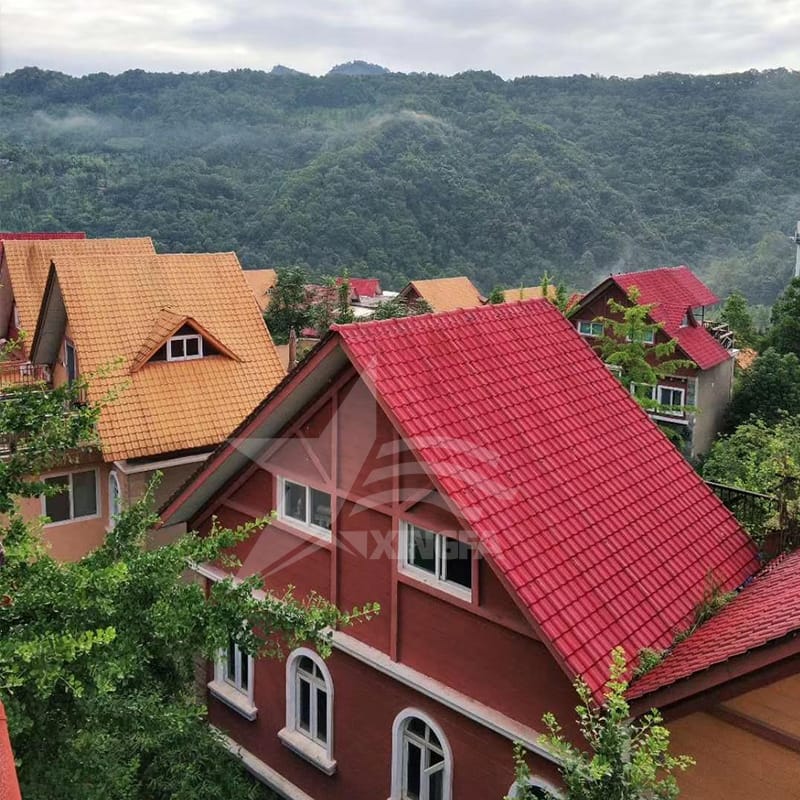
Unmatched Safety and Durability
One of the primary benefits of resin tiles is their excellent waterproof and fire-resistant properties, providing multiple layers of protection for buildings. In extreme weather conditions, the outstanding weather resistance of resin tiles prevents cracking and deformation, laying a solid foundation for long-term stability in post-disaster reconstruction.
Superior Sound Insulation
As urbanization progresses, noise pollution has become a significant concern. Resin tiles excel in sound insulation, effectively reducing external noise interference and creating a quieter living environment for residents. This feature is particularly valuable in densely populated urban areas where noise control is crucial for maintaining a high quality of life.
Environmental Sustainability
Environmental sustainability is another standout feature of resin tiles. Compared to traditional building materials, the production of resin tiles involves lower energy consumption and reduced emissions of pollutants. This aligns well with the principles of sustainable development, making resin tiles a green choice for modern construction projects.
Economic and Practical Benefits
In addition to their environmental and safety advantages, resin tiles are also economically practical. Their durability and low maintenance requirements translate into long-term cost savings for building owners. The ease of installation further reduces labor costs and construction time, making them an efficient option for large-scale rebuilding efforts.
Contributing to a Better Future
In post-disaster reconstruction, the superior performance and eco-friendly characteristics of resin tiles make them an ideal choice. Our commitment is to provide high-quality resin tile products that support rebuilding efforts and contribute to the creation of a safer, more sustainable future. By integrating resin tiles into reconstruction projects, we can ensure that new structures are not only more resilient to future disasters but also contribute positively to the environment.
Key Features of Resin Tiles for Post-Disaster Rebuilding
1. High Strength and Lightweight:
Resin tiles are engineered to be both lightweight and robust, simplifying the logistics of transportation and installation in disaster-affected areas. Their strength ensures that rebuilt structures can better withstand the forces of nature.
2. Exceptional Waterproofing:
The inherent waterproof properties of resin tiles protect buildings from water damage, a critical factor in regions prone to heavy rainfall and flooding. This feature enhances the longevity of the structures and reduces maintenance costs.
3. Fire Resistance:
Safety is paramount in post-disaster rebuilding. Resin tiles offer excellent fire resistance, providing an added layer of security against potential fire hazards. This makes them particularly suitable for areas with high fire risk.
4. Weather Resistance:
Resin tiles are designed to endure harsh weather conditions without losing their structural integrity. Their resistance to UV rays, temperature fluctuations, and moisture ensures that the buildings remain stable and secure over time.
5. Sound Insulation:
In urban areas, the ability to insulate against noise pollution significantly improves the living conditions of residents. Resin tiles’ soundproofing capabilities help create peaceful and comfortable indoor environments.
6. Eco-Friendly Production:
The manufacturing process of resin tiles is geared towards sustainability. By reducing energy consumption and minimizing the release of harmful pollutants, resin tiles contribute to environmental conservation and align with global efforts to promote sustainable building practices.
Conclusion
Resin tiles stand out as a superior choice for post-disaster reconstruction due to their strength, durability, and environmental benefits. Their ability to provide robust protection against water, fire, and extreme weather conditions makes them invaluable in creating resilient structures. Additionally, their sound insulation properties and eco-friendly production process make them a holistic solution for modern construction needs.
As we look towards rebuilding after disasters, integrating resin tiles into our construction practices promises not only safer and more durable buildings but also a commitment to sustainable development. Our goal is to support communities in their recovery efforts by offering top-quality resin tiles that ensure a secure, eco-friendly, and economically viable future.

By choosing resin tiles for reconstruction, we are investing in a better tomorrow—one that prioritizes the safety and well-being of residents, the durability of structures, and the health of our planet. This comprehensive approach to rebuilding ensures that we are not only addressing the immediate needs of disaster recovery but also paving the way for a sustainable and resilient future.

